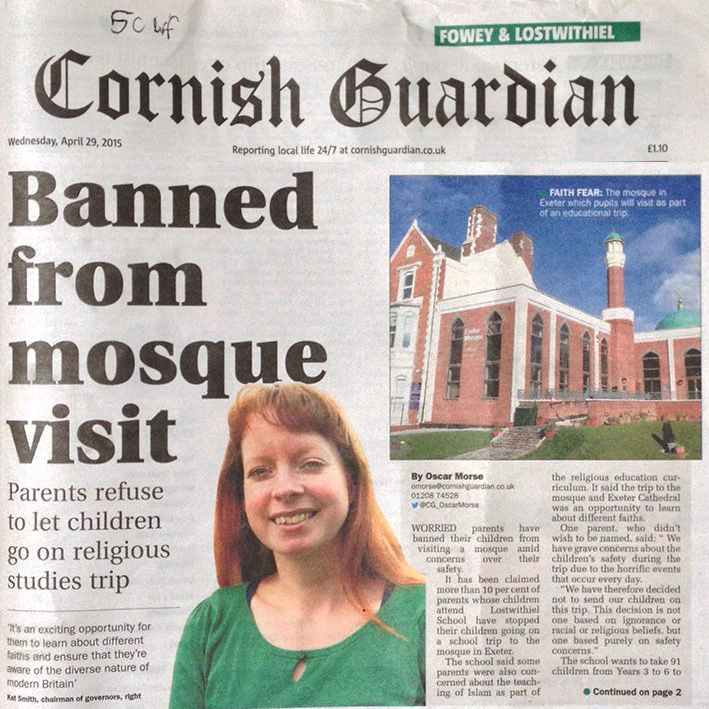
Bye bye Twitter (X)
Written by Kat
This post is about something we've been considering for a while and is connected to Mat's blog about digital empathy.
It's over five years since we left a social channel (Google+) and that was involuntary, as the network shut down and only a small hard-core of people were using it by the end, so hardly anyone noticed.
Nobody will notice that we've left Twitter (X, but I'll keep saying Twitter) but of course, it's still a very active network. It has been and continues to be an important source of information, connection, debate and opinion for millions of people, but we've never really engaged as individuals or as a company.
I've had a personal Twitter account since 2010 but only used it to make public complaints to customer service accounts (used to be an effective tactic when emails are ignored) and to share Iteracy blog posts. Our company tweets have almost exclusively been sharing websites we've built or blogs we've written.
Toxic Twitter
My main complaint about Twitter is that it's too noisy. There are so many people making so many posts, firing off replies and tweets at high speed, that it's easy to find yourself drowning in a torrent of content. That's before you factor in all the bots and trolls spouting misinformation and stirring up hatred. I prefer my online browsing to be leisurely and I prefer to read comments which are considered.
The toxic side of Twitter is well-known and I'm glad to say my experience of this side has been minimal (almost certainly correlated to how much I use the platform). Both public figures and private individuals, particularly women, can receive horrendous and terrifying messages and attacks.
My only experience was as Chair of Governors at a local primary school when a planned Religious Education visit provoked unexpectedly negative reactions from some parents. Unfortunately, they wrote to the local paper before contacting the school (the headteacher would have made it clear the trip was optional) and the story was picked up by national tabloids. As a result, the school received a deluge of upsetting and intimidating emails, answerphone messages and letters and packages from people across the country, and my personal Twitter account was targeted. I received unpleasant messages from people around the world who completely misunderstood the situation, which continued sporadically for years after I stopped being a governor at the school. I can only imagine what the response would have been if I'd used the platform to express my opinions about the situation.

To be clear: Kat was not banned from a mosque
I â¤ï¸ Quora
My favourite social network is Quora where people write long-form answers to questions based on their own experience or research, for example astronauts or people who have been to prison. Like all platforms it has the same issues of bots and trolls, there are always grumbles about attempts to monetise the platform and plagiarism (and now AI-generated content) can be a problem. However, there are several prominent writers from a wide variety of backgrounds that I follow and their answers are always illuminating and fascinating.
So why leave Twitter now?
I logged in recently and was challenged to put in a date of birth for our company account, which I entered as the date the company was founded. The account was then suspended because the company would have been underage when the account was registered. The process to get it reactivated was ridiculously difficult (we failed all the visual "human challenge" tests and only passed the audio version on a third attempt) and it made me question the point of having the account at all.
Elon Musk has been grabbing headlines since he took over Twitter in 2022, and it's changed from being a place that I don't feel connected to, to a place I feel deeply uncomfortable about. It's difficult to gauge without actively using the platform, but I've seen the news about previously banned accounts that have been reactivated and even celebrated.
A week ago, t.e.c. girls who we follow on Instagram posted something that gave me pause for thought:
"Today we have deactivated our account on X.
As a non-profit this was a hard call to make. Most of our funding comes from companies who support our work and Twitter used to be a great place to connect with them and showcase all of our projects. It was also helpful for promoting events and sharing research.
HOWEVER, we are a non-profit that focuses on improving the future for girls and women. We have strong inclusion policies and clear guidance on the types of organisations we work with. We encourage girls to be responsible digital citizens. X and its management team do not appear to share those values. We cannot promote inclusion projects on a platform that encourages hate, harassment and division.
We will miss Twitter. X not so much."
We don't use Twitter, and our account closing won't make a ripple in the Twittersphere, but maybe if millions of others do the same it will send a powerful message and move important conversations into more inclusive spaces.
See you on other channels
We still have company Facebook and Instagram accounts (oh, and YouTube). I'm not wild about Meta, and I've pretty much stopped using Facebook for anything that is not work-related, but our small group of followers is almost entirely friends and family. It's great to share what we're doing with them and to get their support and feedback. Social networks should be about building positive connections and right now, we get that from Facebook and Instagram. We have no plans to start a TikTok account.
What's your take on Twitter or other social media? Are you still finding value or do you think it's a waste of time?
Tagged under: Hot topics Social media Social network